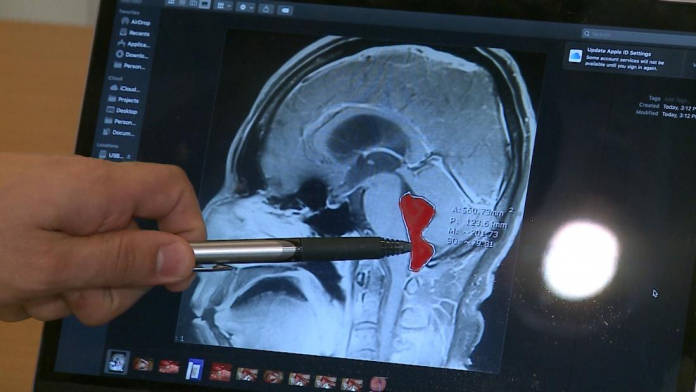A 40-year-old man from Texas was suffering with splitting headaches since years and the diagnosis was something out of Google’s system. A tapeworm larva had taken up space in his brain which was causing unbearable headaches. Similarly, if the diagnosis had taken any longer, it could have killed him. The patient finally sought help when the headaches became fainting. Moreover, the unusual symptoms of the patient actually led the doctors into believing that he was suffering with brain cancer.
The patient described the pain to be very intense and very strong. In addition, the patient would often sweat and vomit because of the pain. MRI images of the patient revealed life-threatening pressure in the brain. The pressure in the brain was as a result of the tapeworm larvae lodged in the fourth ventricle of the brain, filled with cerebrospinal fluid. Fortunately, the patient was attended to just in time. The 40-year-old patient was suffering from a condition called neurocysticercosis, a development of larval cysts in the brain, causing neurological symptoms (Mahanty, 2019). The lesion in the patient’s brain was caused because of a tapeworm larva which most likely lived in the patient’s body for years. According to the US Centers for Disease Control and Prevention, each year, 1000 cases of neurocysticercosis are reported in the US, the case is fairly rare. Most likely, the parasite entered the patient’s body while he was living in Mexico. The patient, however, moved to the US 14 years before his diagnosis. Supposedly, the tapeworm larvae might have been living in the patient’s body for more than 10 years.
The cysts can grow for a number of years in the body and go undiagnosed because most cases like this do not present in this way. Although, tapeworms are not quite common in the US. More people are infected with this tapeworm than they are aware of, classifying the problem as endemic. Tapeworms typically pass on without any medication and take residence in the human intestines. According to the CDC, tapeworms are a less common ailment in the US. The parasite transmits either when people come in contact with water or food contaminated with eggs of tapeworms or because of consuming undercooked pork; pigs are intermediary hosts of tapeworm. The best line of defense to keep safe from tapeworms is to wash hands with soap before eating and consuming food that is cooked in sanitary conditions.
The tapeworms were removed in an emergency brain surgery; the patient made a full recovery after undergoing the surgery. The cyst was successfully removed in one piece after opening a part of the skull near the brain. Nonetheless, the patient was headache free and back to work in no time. However, even though neurocysticercosis is rare, it is not impossible. As stated by Dr. Jordan Amadio, neurosurgeon at Austin’s Ascension Seton Medical Center. The case may be fascinating, but, is important from a standpoint of public health. Therefore, it is imperative to take universal precautions and people need to be aware that these infections are not just in the developing world but also in the US.
References
Mahanty, S. (2019). Update on neurocysticercosis. Pathology, 51, S59.




